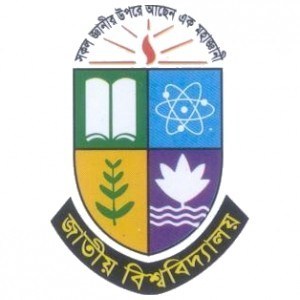Photos of university / #edinburghuniversity
Biochemistry is fundamental to most areas of life-science: it has a major impact on modern medical research and is essential in the pharmaceutical, nutrition, forensic, bioengineering, agricultural and environmental industries. The programme is designed to produce highly skilled and motivated biochemists that are suitable for entry into employment in life-sciences industry or for further academic research.
Students will be taught to apply chemical and physical principles to biological molecules in complex living systems in order to expand their understanding of the molecular basis of the processes which take place within these organisms. Through a combination of taught courses, practical skills training and laboratory-based research, students will explore the structures, dynamics, interactions and metabolic pathways of biological molecules, from small molecules to large macromolecular complexes.
This programme lasts 12 months and involves two semesters of teaching followed by an individual research project.
The MSc lasts 12 months but a diploma option is also available. The diploma lasts nine months from September to May and includes only the taught courses. To be awarded an MSc you must also complete a dissertation.
The taught courses are worth a total of 120 credit points.
You will take several courses run by the School of Biological Sciences and other schools within the University. These are selected in consultation with the Programme Director.
The taught element requires 120 credits of study, which you will achieve by taking a combination of compulsory and optional courses.
Compulsory courses are worth a total of 60 credits, leaving you the flexibility to choose the remaining 60 credits from the range of optional courses offered by the School of Biological Sciences and other Schools within the University. Ideally these will be spread evenly over the two semesters.
You will choose these courses in consultation with the Programme Director, according to your interests and prior knowledge, and taking into account your future career aspirations.
You can choose any combination of courses listed below, timetable permitting.
Semester one
Compulsory courses
- Biochemistry 1 Enzymes and Metabolism
- Biophysical Chemistry
- Practical Skills in Biochemistry 1
Optional courses
- Applicable Mathematics
- Biomacromolecules
- Enzymology and Biological Production
- Gene Expression and Microbial Regulation
- Information Processing in Biological Cells
- Molecular Modelling and Database Mining
- Preparative Methods for Structural Biology
- Tools for Synthetic Biology
Semester two
- Compulsory courses
- Biochemistry 2 Intermolecular Interactions
- Practical Skills in Biochemistry 2
- Project Proposal and Literature review (Biochemistry)
Optional courses
- Applications of Synthetic Biology
- Bioinformatics
- Biological Physics
- Commercial Aspects of Drug Discovery
- Detailed Characterisation of Drug or Ligand Interactions Using SPR
- Drug Discovery
- Functional Genomic Technologies
- Protein Structure Determination
The period of individual research from May to August resulting in the final dissertation is worth a further 60 credits.
Research dissertation
You will undertake a research project and produce a dissertation which will be submitted on an assigned date in mid-August.
From May to August you will undertake a research project and complete a dissertation, provided you have fulfilled the requirements of the taught element of the programme. This exciting opportunity is a vital part of your MSc degree, allowing you to undertake relevant research in this field. Projects are usually hosted in the excellent research laboratories within the School of Biological Sciences.
Your dissertation should be approximately 10,000 words in length and must be submitted on or before an assigned date in mid-August.
Choosing your research topic
You will choose your research topic in consultation with the Programme Director.
You are encouraged to establish contacts with research laboratories at the University in which you are particularly interested. Research projects are usually entirely experimentally based but can be computational; some students try to combine both approaches. The project allows you to apply the skills you have gained during the taught element and to develop new skills in a cutting-edge research environment.
The choice of research project will vary from year to year, depending upon the current research being undertaken in the School.










